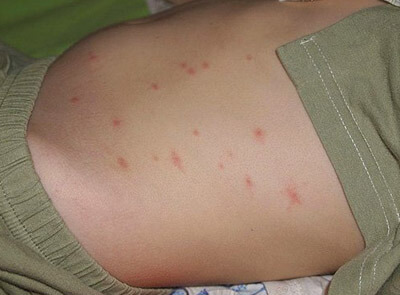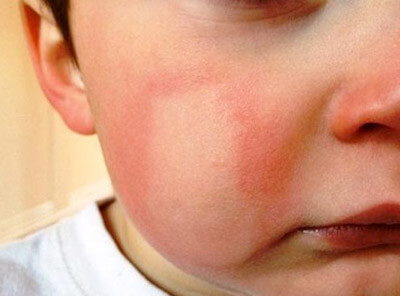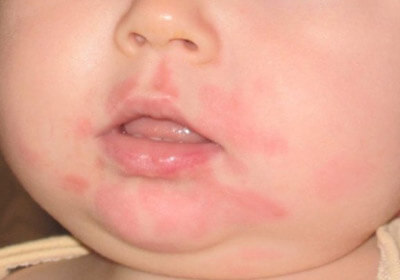Honey has long been considered a unique product. Even in ancient times, sweets were replaced with it. And there are legends about the medicinal properties of the product. But what if you are allergic to honey? It is this bee product that is one of the products with a high degree of allergenicity. Often, this disease begins to develop in childhood. But, there are cases and the occurrence of allergies already in adulthood. In any case, if you are allergic to honey, it is strictly forbidden to use not only honey, but also other bee products. Any type of allergy requires immediate treatment. Therefore, it is important to recognize the first symptoms of the disease in a timely manner.
The main causes of allergy to honey
Allergy to honey is an inadequate reaction of the body after consumption or contact with honey. Scientists have proven that this type of reaction provokes plant pollen contained in honey. From this we can conclude that the cause of allergies is not honey itself, but the basis from which the product is made. Allergies can occur to specific varieties of honey, depending on which pollen from which plant the product is made.

With proper preparation of a quality bee product, an allergic reaction rarely occurs. More often various impurities act as provocateurs. So, unscrupulous manufacturers add cane sugar to the product, which acts as a strong allergen. Also, medicines that were used to treat bees sometimes get into honey. In general, the following main causes of allergic reactions to honey can be distinguished:
- Violations of technology in the manufacture of honey;
- A large amount of pollen in the product;
- Therapy of families of bees with antibiotics;
- Lack of hygiene standards for honeycombs;
- Excessive consumption of honey.
Allergy to honey in children at an early age, most often, occurs as a result of a factor of heredity or genetic predisposition. This applies to those cases when the disease is diagnosed from birth. Acquiring an allergy is very easy with excessive consumption of this highly allergenic product. The daily norm is considered to be no more than 150 grams of honey.
Doctors say that allergy to honey mainly affects those people who suffer from bronchial asthma, allergic bronchitis, rhinitis. In this case, the symptoms of allergies will be masked as manifestations of asthma. This is due to the rather low protective reactions of the body. Weak immunity is not able to adequately respond to certain substances, and classifies them as pathogenic. Therefore, in addition to allergy therapy, it is very important to strengthen the immune system. This will help to avoid recurrence of the disease.
Signs of honey allergy
How does honey allergy manifest itself? In each case, the symptoms of an allergy to honey are different. It all depends on the individual characteristics of the patient's body. It is worth noting that the first signs will be noticeable in the next half hour after drinking honey, or contact with the product. Such a short incubation period allows you to quickly identify the problem, and begin immediate treatment.

So, first of all, skin allergic reactions will occur. The skin turns red, covered with small blisters, urticaria. All this is accompanied by severe itching and burning. Edema and inflammation of the skin can be of varying severity. Among other symptoms of the disease, it is worth noting the following manifestations:
- Dyspnea;
- Bronchial spasm;
- Sore throat;
- Bouts of coughing and sneezing;
- Rhinitis;
- Conjunctivitis;
- Abdominal pain;
- Diarrhea;
- Vomit;
- Quincke's edema.
These symptoms are considered the most common in case of an allergy to honey. Quincke's edema can be called dangerous. In this case, swelling of the mucous membranes develops in a matter of minutes. Most often, the eyelids of the eyes, lips, limbs increase in size. Of particular danger is swelling of the throat, larynx, tongue, trachea, palate. Such a complication threatens the patient with death from asphyxia.
Less commonly, you can observe an increase in body temperature, headache, increased fatigue of the body. Together with the main symptoms, an allergy to honey can manifest itself in the form of insomnia, deterioration in the quality of hearing. Also, ear plugs can form. It is worth noting that anaphylactic shock when using honey, and other products based on it, is also possible. In this case, it is extremely important to immediately help the patient. After all, anaphylactic shock very often ends in death. The following symptoms may indicate the presence of anaphylactic shock: a constant feeling of thirst, increased sweating, a drop in blood pressure, pallor of the skin, a constant feeling of anxiety, difficulty breathing, respiratory arrest.
Honey Allergy Treatment
Fortunately, honey allergy is successfully treated today. But, after eliminating painful symptoms, it is better to minimize the use of this product. Before treatment, it is important to make a diagnosis. With medicine, there are two options for determining an allergy to honey. So, it is necessary to apply a small amount of honey to the elbow bend area. If there is indeed an allergy, the skin on the arm will turn red within a few minutes. Another way involves the use of honey inside. A small amount of the product should be held in the mouth for a short period of time. If the body does not tolerate honey, unpleasant symptoms will begin to appear immediately: sore throat, nausea, abdominal pain, swelling of the mucous membranes, the development of rhinitis and conjunctivitis.
In a medical institution, specialists take blood for research. Based on the results of this analysis, the doctor can determine the concentration of the allergen, the amount of histamine released. This is done in order to set the most effective dosage of the drug. For the treatment of allergies to honey, in the first place, antihistamines are prescribed. Creams and ointments are used to eliminate skin manifestations. If the patient is severely tormented by rhinitis, it is allowed to use antihistamine nasal drops and sprays.
Antihistamines
Antihistamines aim to stop the release of histamine from mast cells. There are three generations of these drugs. The latest generation is the safest, has a minimum number of contraindications and adverse reactions. Therefore, experts give preference to them. But, many of them are prohibited for use by children. It follows from this that any antihistamine drug should be selected exclusively by a doctor, taking into account the individual characteristics of the patient's body, age, concomitant chronic diseases. And self-treatment can lead to irreversible consequences. Most often, doctors prescribe the following drugs for allergies to honey:
- Suprastin;
- Tavegil;
- Zyrtec;
- Erius;
- Telfast;
- Clarinex.
Local preparations
Antihistamine tablets, of course, will relieve the patient from manifestations of allergies (urticaria, rhinitis, conjunctivitis, itching and burning). But this will take time. If immediate elimination of skin manifestations of allergies is required, various creams, ointments and gels are used. Speaking of such local preparations, hormonal and non-hormonal creams can be distinguished. Hormonal ointments for allergies are rarely prescribed. Hormones can easily penetrate into the general circulation, which will disrupt the hormonal background of the patient as a whole. The course of treatment with such drugs is minimal (no more than 5 days). Therapy is carried out exclusively under the supervision of a doctor. For pregnant women, such remedies for allergies to honey are categorically contraindicated. Also, it is undesirable to use hormonal creams to treat allergies in children.

The most commonly used creams and ointments without hormones. They are absolutely safe to use. Designed for long-term treatment. Widely used by both children and pregnant women. Non-hormonal antihistamine ointments have a cooling effect, which very quickly eliminates itching and burning of the skin. Also, speaking of useful properties, such agents have antibacterial, antiseptic, antipruritic, antihistamine effects. Popular drugs include:
- Skin cap;
- Wundehill;
- Bepanthen;
- La Cree;
- Psilo-balm;
- Fenistil gel;
- Panthenol.
Other medicines to treat honey allergy
One of the main symptoms of honey allergy is rhinitis. Nasal congestion, constant discharge from the nasal cavity bring a lot of discomfort. Therefore, allergy to honey is also treated with antihistamine nasal agents. Such drops in the nose should be prescribed exclusively by a doctor. The funds have different active substances that are designed to eliminate various manifestations of rhinitis. Experts distinguish such highly effective drugs:
- Fenistil drops;
- Allergodil;
- Levocabastin;
- Cromhexal;
- Zyrtec drops;
- Avamis;
- Nasonex.
It is extremely important to remove the allergen from the body very quickly. Such actions will help get rid of pain in the abdomen, nausea, vomiting, diarrhea. For this purpose, enterosorbents are used: white coal, Polysorb, Atoxil, Smecta, Enteros-gel. In general, an integrated approach to solving the problem will help to completely get rid of allergies to honey. Of course, for the duration of treatment, it is worth completely abandoning the use of honey, as well as products containing it.
Prevention
To reduce the risk of recurrence of an allergy to honey, as well as to enhance the therapeutic effect of medications, you should follow some rules. So, to strengthen the immune system, it is worth organizing regular moderate physical activity. Going in for sports strengthens not only the muscles of the body, allows you to maintain the bone skeleton, but also the immune system. Swimming is a great option. In this case, absolutely all muscles work.
It is important to maintain the correct daily routine. It is worth waking up and going to bed at the same time. Eight hours of sleep is the key to good health, complete restoration of the central nervous system. It is necessary to avoid stress, nervous overload. All this has an extremely negative effect on the immune system of the body. During the treatment period, you need to monitor the diet. For a speedy recovery, it is better to adhere to a nutritional diet. Such a diet excludes the use of foods with a high degree of allergenicity:
- Seafood;
- Citrus;
- Vegetables and fruits of red and orange color;
- Nuts;
- Chocolate;
- Sugar.
In the future, if allergic reactions were moderate, you can use a small amount of honey. But, this beekeeping product must be of high quality. Give preference to unblended honey. In order to strengthen immunity, it is worth periodically taking a course of therapy with multivitamin complexes. These simple precautions can help prevent a recurrence of an allergy to honey.










